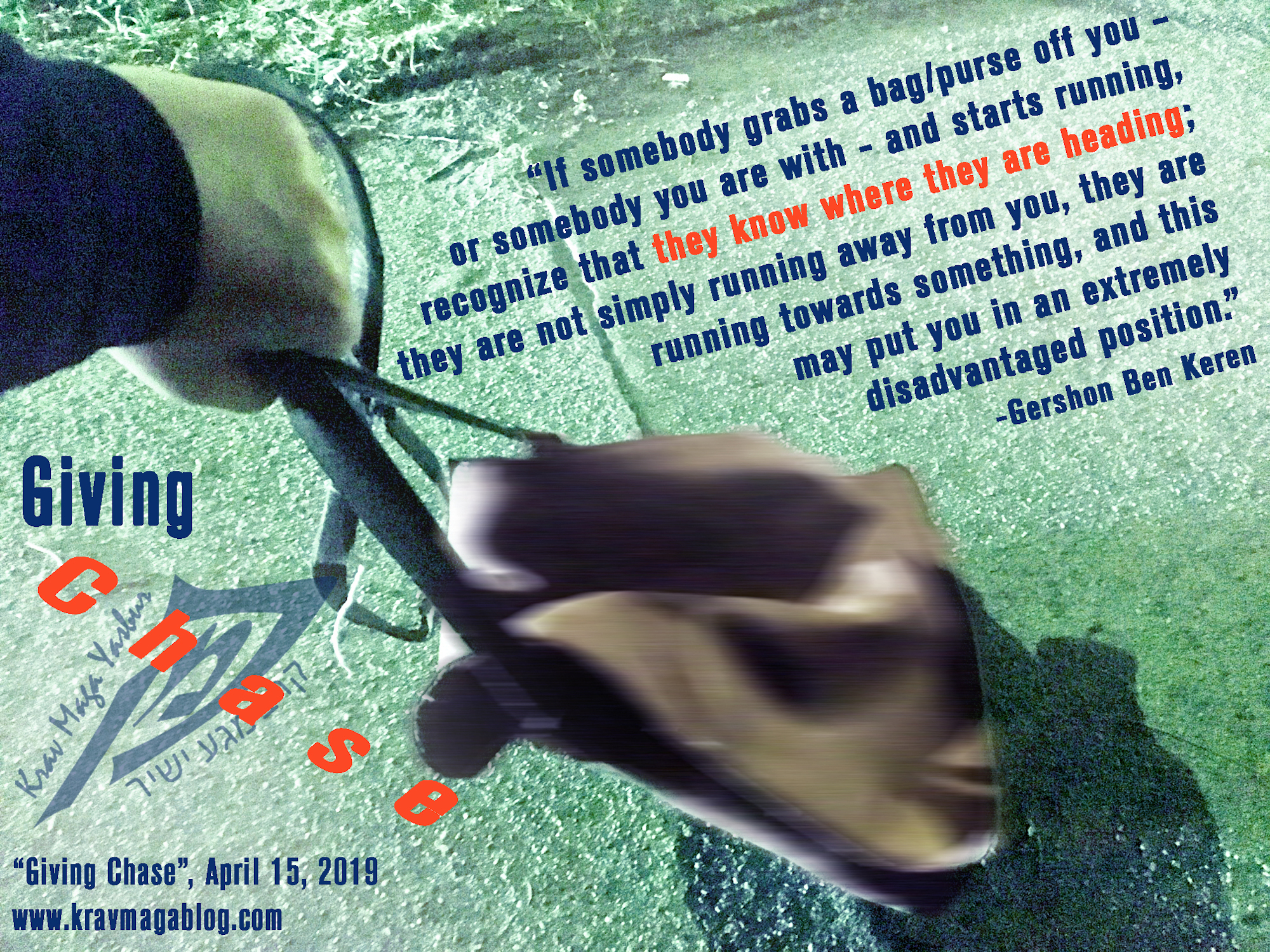We all have our own personal reasons for starting to train in the martial arts, self-defense, combatives, or whatever we want to refer to our method of training as. Mine was largely – but not exclusively - because I was bullied as a kid, and wanted a way to level the playing field, with my much larger and more numerous adversaries. I can tell myself that this was a matter of survival, however ego was also at play, as, truth be told, I wanted to teach them a lesson, and be recognized as somebody who couldn’t be targeted as a victim; ego was certainly present because I wanted to be seen and perceived in a certain way, not just to avoid violence, but for my own self-image, and self-esteem. I’m not arguing that any of these reasons were “wrong”, but merely recognizing that it is easy to lose or fail to recognize egotistical motives in our reasons for doing things, and alter/change our narratives to be simplistic, and portray us in a better light e.g. if I said I started training in the martial arts, because I was bullied as a child, people may assume that ego wasn’t at play, and the decision was purely about survival, etc. It is all too easy to justify our actions by rewriting our motives and convincing ourselves that what we are doing is motivated by the highest, purest, and most necessary reasons, when really what is driving us is our ego – and where violence is concerned this can be extremely dangerous. We can make the argument that we shouldn’t hand our wallet over to an armed assailant, because it’s wrong for people to rob others, and this reinforces their behavior, etc., however if we’re honest, the majority of our reasons for not wanting to acquiesce are driven by ego, rather than survival e.g. we don’t want to see ourselves as a victim, we don’t want to be seen by others as not being able to handle the situation, etc. Recently, I’ve heard a number of stories about people chasing after bag/purse snatchers and the like and want to address the issue of “giving chase”, from a personal safety perspective.
If people want my resources and are prepared to back it up with violence, I’ll acquiesce; they are more motivated to acquire my stuff than I am to hold on to it. After handing it over, I’m leaving that environment as quickly as possible, rather than chasing or following the mugger deeper into it. Criminals plan their escape routes, even if it is tacitly, and those routes lead in particular directions. If you give chase to a bag/purse snatcher who grabs your things and runs, they know where they are heading, but you don’t, and if they feel/believe you aren’t going to give up the chase, it is likely that they will head for home territory; where they will have the geographic advantage. A good majority of muggings and bag snatches take place near or in close proximity to the perpetrator’s home or in areas that they are familiar with – even those that “commute” to commit their crimes will normally have a good understanding of their environment. If you give chase, you may well be heading into the unknown, and towards areas where the person you are chasing has friends and acquaintances who can come to their assistance. If a friend has their purse/bag snatched, you may be motivated by the injustice of the situation, however there may also be a large degree of ego involved in your decision to give chase, because you don’t want to be seen or perceived as “weak” by this other person – we may in doing so, risk our own survival, for the sake of replaceable goods.
If you give chase to somebody and show no signs of giving up, they may feel they have little alternative but to turn and challenge you. This has happened to me. In my younger and stupider days, I once chased a guy into a parking lot, next to a club where I was working. It was purely ego-driven and completely unnecessary, as I was trying to demonstrate to those I was working with that I was a committed member of the team. We’d dealt with a situation and as the individual in question ran off, he pushed one of the other doormen, who fell over. Rather than letting the incident end there, which I should have done, I gave chase, without even thinking about what I’d do if/when I caught up with him; when you act due to ego, there is rarely a plan involved. When I did start to gain ground on him - which was inevitable due to the amount he’d had to drink - he pulled a knife. In that moment everything changed, and a completely avoidable situation had been escalated. I spent the next minute or so being chased around a car, until two of the team who had followed me, turned up and we were able to restrain him. Driven by ego, having gotten caught up in the act of the chase, and without a plan or goal, I’d escalated a situation that was already over, and forced an unnecessary armed confrontation, that could have ended very differently.
It may also be that a criminal wants you to chase them, either to lure you away, and move you to an unsafe location (where they have accomplices), or as part of a larger/bigger crime. One of the Law Enforcement Officers who trains at my school, told me of a fairly common strategy for theft in his district. During the summer, many people use the city’s common to sunbathe, possibly bringing a radio, or using their phone to play music on, etc. A common ploy is for one person to grab the phone or other item of value, in order to get the owner to give chase. Once they are far enough away, an accomplice grabs any items of value that have been left, and runs off in the other direction – theoretically both parties meet up later and divide the spoils (though often in such temporary alliances, whoever gets the bigger stash keeps it to themselves). By giving chase, and trying to retain one item, you end up losing everything. Often crimes are opportunistic, but sometimes there is a strategy and a level of planning involved – when you give chase, you are usually the one behind on the curve.
If somebody grabs a bag/purse off you – or somebody you are with - and starts running, recognize that they know where they are heading; they are not simply running away from you, they are running towards something, and this may put you in an extremely disadvantaged position. You may hope that they drop what they have taken, however if this is your plan, it is not one that you control and manage, and you may find yourself running towards a physical confrontation. The other thing to note is that the chase may be part of the plan, such as to move you away from other possessions, or a person you are with, that those involved want to gain access to.
Share:

Gershon Ben Keren
2.8K FollowersGershon Ben Keren, is a criminologist, security consultant and Krav Maga Instructor (5th Degree Black Belt) who completed his instructor training in Israel. He has written three books on Krav Maga and was a 2010 inductee into the Museum of Israeli Martial Arts.
Click here to learn more.

